Filter by
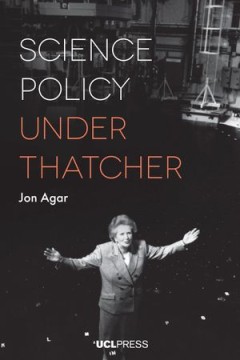
Science Policy under Thatcher
Margaret Thatcher was prime minister from 1979 to 1990, during which time her Conservative administration transformed the political landscape of Britain. Science Policy under Thatcher is the first book to examine systematically the interplay of science and government under her leadership. Thatcher was a working scientist before she became a professional politician, and she maintained a close wa…
- Edition
- -
- ISBN/ISSN
- 9781787353411
- Collation
- -
- Series Title
- -
- Call Number
- -
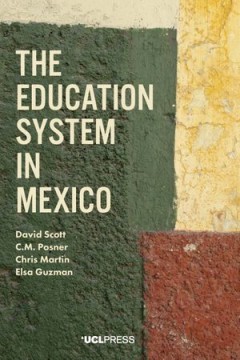
The Education System in Mexico
Over the last three decades, a significant amount of research has sought to relate educational institutions, policies, practices and reforms to social structures and agencies. A number of models have been developed that have become the basis for attempting to understand the complex relation between education and society. At the same time, national and international bodies tasked with improving …
- Edition
- -
- ISBN/ISSN
- 9781787350724
- Collation
- -
- Series Title
- -
- Call Number
- 370.1 POS e
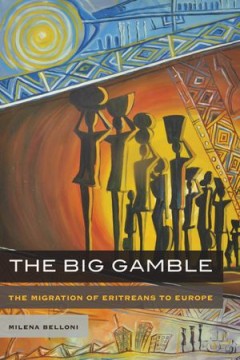
The Big Gamble : The Migration of Eritreans to Europe
Tens of thousands of Eritreans make perilous voyages across Africa and the Mediterranean Sea every year. Why do they risk their lives to reach European countries where so many more hardships await them? By visiting family homes in Eritrea and living with refugees in camps and urban peripheries across Ethiopia, Sudan, and Italy, Milena Belloni untangles the reasons behind one of the most under-r…
- Edition
- -
- ISBN/ISSN
- 9780520970755
- Collation
- -
- Series Title
- -
- Call Number
- 304.8 BEL b
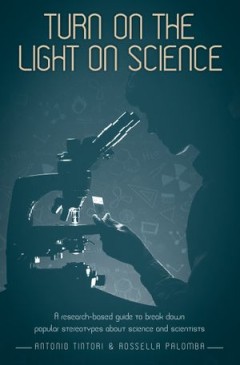
Turn on the light on science: A research-based guide to break down popular st…
Scientists deserve public recognition. The ways that they are depicted, however, are severely limited in physical and personal traits, helping to establish and enhance stereotypes under the general title of ‘scientist’. These stereotypes range from the arrogant researcher who wants to rule the world, to the lab coat wearing ‘nerdy’ genius, but all generally fall to an extreme view of an…
- Edition
- -
- ISBN/ISSN
- 9781911529057
- Collation
- -
- Series Title
- -
- Call Number
- 300 PAL t
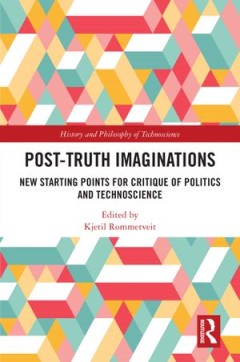
Post-Truth Imaginations: New Starting Points for Critique of Politics and Tec…
This book engages with post-truth as a problem of societal order and for scholarly analysis. It claims that post-truth discourse is more deeply entangled with main Western imaginations of knowledge societies than commonly recognised. Scholarly responses to post-truth have not fully addressed these entanglements, treating them either as something to be morally condemned or as accusations against…
- Edition
- -
- ISBN/ISSN
- 9780429628764
- Collation
- -
- Series Title
- -
- Call Number
- -
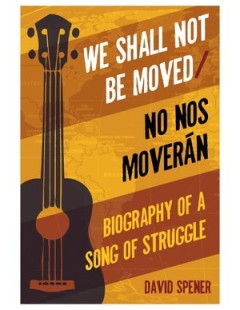
We Shall Not Be Moved/No nos moverán: Biography of a Song of Struggle
We Shall Not Be Moved: The Trail Blazed by a Song from the U.S. South to Spain and South America details the history of "We Shall Not Be Moved" from its birth as a slave spiritual in the U.S. South and its subsequent adoption as a standard hymn by the U.S. labor, civil rights, and farmworker movements, to its singing in the student movement opposing the Franco dictatorship in Spain in the 1960s…
- Edition
- -
- ISBN/ISSN
- 9781439912973
- Collation
- -
- Series Title
- -
- Call Number
- 301 SPE w
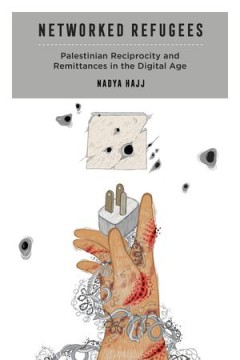
Networked Refugees: Palestinian Reciprocity and Remittances in the Digital Age
A free open access ebook is available upon publication. Learn more at www.luminosoa.org. Almost 68.5 million refugees in the world today live in a protection gap, the chasm between protections stipulated in the Geneva Convention and the abrogation of those responsibilities by states and aid agencies. With dwindling humanitarian aid, how do refugee communities solve collective dilemmas, like rai…
- Edition
- -
- ISBN/ISSN
- 9780520383258
- Collation
- -
- Series Title
- -
- Call Number
- -
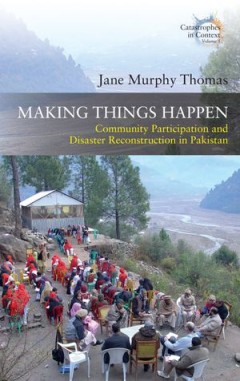
Making Things Happen: Community Participation and Disaster Reconstruction in …
Drawing on the Pakistan Earthquake Reconstruction and Recovery Project (PERRP), this volume explores the sociocultural side of post-disaster infrastructure reconstruction. As the latter is often fraught with delays and even abandonment—one cause being ineffective interactions between construction and local people—PERRP used anthropological and participatory approaches. Along with strong con…
- Edition
- -
- ISBN/ISSN
- 9781800732810
- Collation
- -
- Series Title
- -
- Call Number
- -
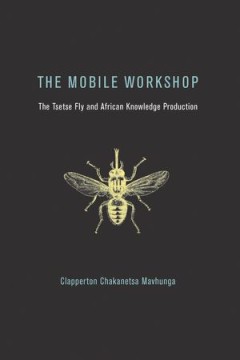
The Mobile Workshop:The Tsetse Fly and African Knowledge Production
How the presence of the tsetse fly turned the African forest into an open laboratory where African knowledge formed the basis of colonial tsetse control policies. The tsetse fly is a pan-African insect that bites an infective forest animal and ingests blood filled with invisible parasites, which it carries and transmits into cattle and people as it bites them, leading to n'gana (animal trypanos…
- Edition
- -
- ISBN/ISSN
- 9780262535021
- Collation
- -
- Series Title
- -
- Call Number
- -
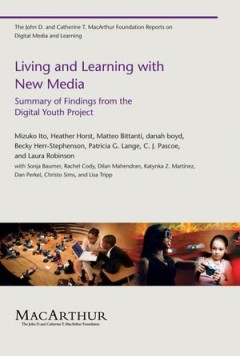
Living and Learning with New Media: Summary of Findings from the Digital Yout…
This report summarizes the results of an ambitious three-year ethnographic study, funded by the John D. and Catherine T. MacArthur Foundation, into how young people are living and learning with new media in varied settings—at home, in after school programs, and in online spaces. It offers a condensed version of a longer treatment provided in the book Hanging Out, Messing Around, and Geeking O…
- Edition
- -
- ISBN/ISSN
- 9780262513654
- Collation
- -
- Series Title
- -
- Call Number
- -
 Computer Science, Information & General Works
Computer Science, Information & General Works  Philosophy & Psychology
Philosophy & Psychology  Religion
Religion  Social Sciences
Social Sciences  Language
Language  Pure Science
Pure Science  Applied Sciences
Applied Sciences  Art & Recreation
Art & Recreation  Literature
Literature  History & Geography
History & Geography